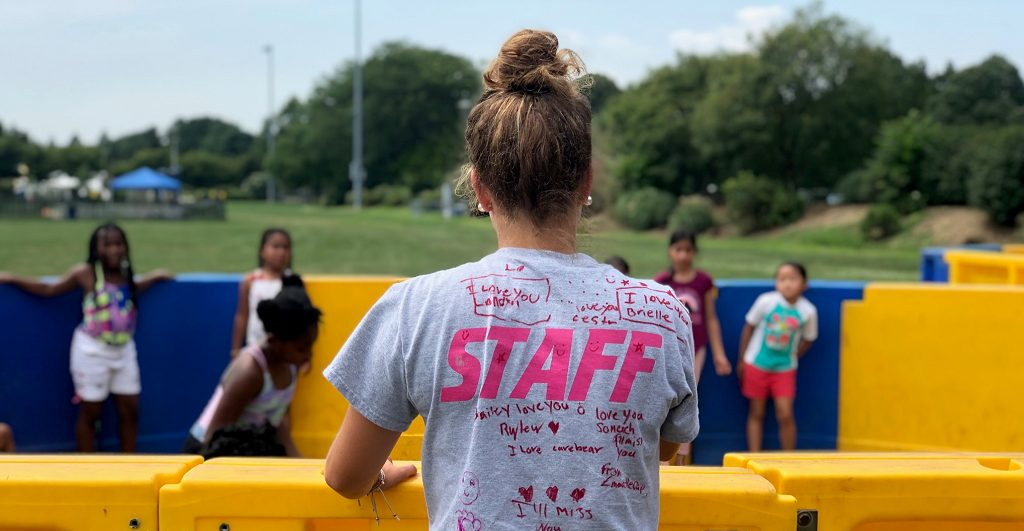Balancing the Grind: Why Summer Jobs Matter for Student-Athletes Planning for Life After Sports

For student-athletes, summer break is often viewed as a much-needed window to rest, recover, and train without the pressure of school or competition. But for those with aspirations that extend beyond the playing field, it’s also a crucial time to gain real-world work experience. Securing a summer job that aligns with long-term career goals can be a game-changer — offering exposure, skill development, and professional connections that can’t always be found in the locker room.
Still, navigating the world of internships and job applications while juggling athletic responsibilities is no small task. The structure, demands, and unpredictability of athletic schedules often put student-athletes at a disadvantage compared to their non-athlete peers. While the importance of building a professional resume early is clear, the path to doing so isn’t always simple.
Why Summer Experience Matters
While athletics develop qualities like discipline, teamwork, and resilience, employers still want to see relevant industry experience. Whether a student-athlete aspires to enter finance, healthcare, communications, or any other field, having some form of practical exposure is increasingly necessary in today’s competitive job market.
A summer job or internship can help clarify what type of career path is appealing — and what isn’t. It provides an environment where student-athletes can start translating the soft skills they’ve honed through sports into the workplace: leadership, time management, adaptability, and communication. These qualities are valuable, but demonstrating them in a professional setting strengthens a resume and provides stories to share in interviews.
Just as important is the networking aspect. Many job opportunities come from relationships rather than cold applications. Working in a relevant field over the summer gives student-athletes the chance to build a network outside of sports — something that can open doors later, especially when their playing careers come to an end.
The Athletic Schedule Barrier
One of the biggest hurdles student-athletes face in landing meaningful summer jobs is their schedule. Off-season training, summer workouts, and team obligations can limit the ability to take on a traditional 9-to-5 internship. Coaches often expect — and sometimes require — players to remain on campus for summer sessions or training programs, making it difficult to relocate for work or attend in-person internships.
There’s also the issue of timing. Many competitive internships require early applications, often months in advance, during the middle of a hectic academic and athletic season. With limited time to polish resumes, write cover letters, and interview, athletes may miss out simply because they’re stretched too thin.
Some companies also hold misconceptions about student-athletes — assuming their sports commitments will make them less available or less invested in the job. That perception can lead to missed opportunities, even for highly capable and motivated candidates.
Making It Work
Despite the challenges, more student-athletes are finding creative ways to gain professional experience during the summer. One growing option is remote internships, which allow for flexible hours and location independence. These positions are ideal for athletes who need to remain near campus or follow a specific training routine. Many companies, especially startups or small businesses, are open to structuring remote roles for the right candidate.
Some athletic departments and university career centers are also stepping up to help. Dedicated career development programs for student-athletes, networking events with alumni, and partnerships with employers who understand athletic commitments are making it easier to find roles that fit both schedules and goals.
Student-athletes can also look for project-based work or short-term experiences — such as shadowing a professional, assisting with a company project, or volunteering for an event. Even part-time roles that don’t fall into the traditional “internship” category can provide relevant skills and insights.
When possible, it helps to start the conversation early — ideally with coaches and academic advisors — to carve out time or flexibility for summer opportunities. Communicating career goals and exploring options during the school year makes the summer job search feel less overwhelming.
The Long Game
At the end of the day, most student-athletes won’t play professionally, and even those who do eventually move on to new careers. Leveraging the summer to prepare for that transition doesn’t mean abandoning athletics — it means being proactive and intentional about building a future that lasts beyond the final whistle.
Summer jobs aligned with long-term goals help student-athletes see themselves in a new light — not just as competitors, but as future professionals. And while balancing the demands of sports and career-building is undeniably tough, the payoff is worth it. With the right plan and support, the summer months can become a launchpad to success far beyond the field.

